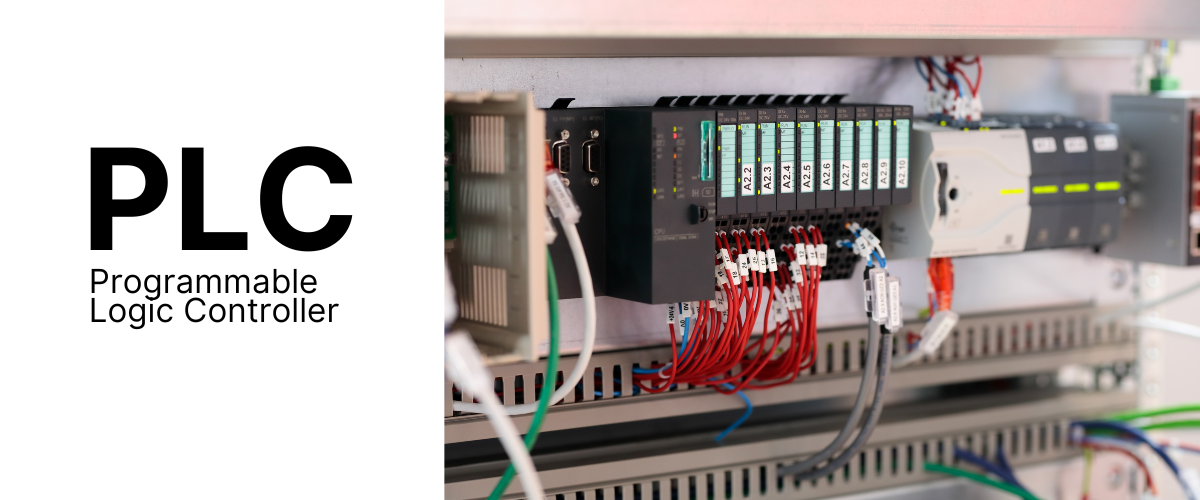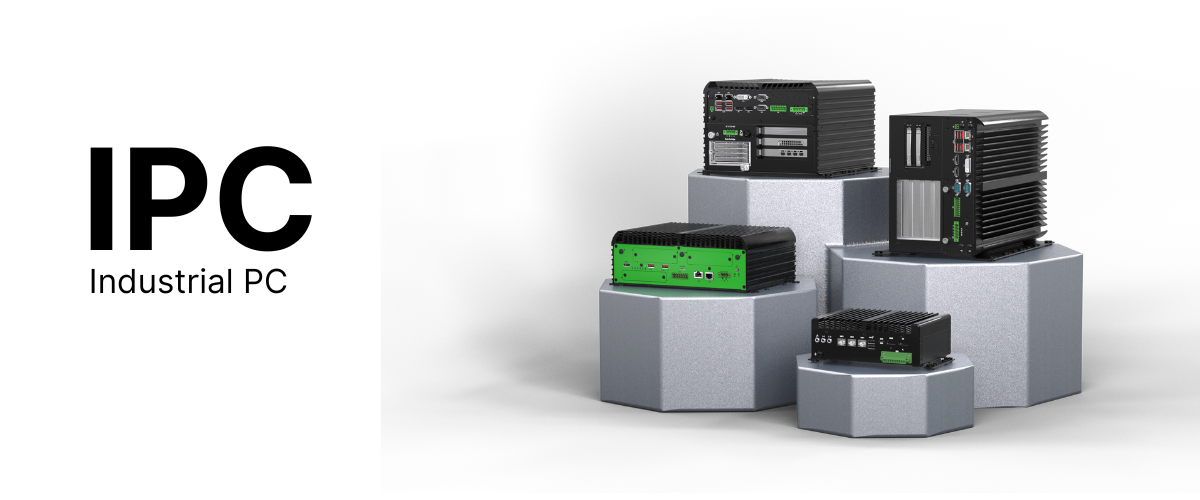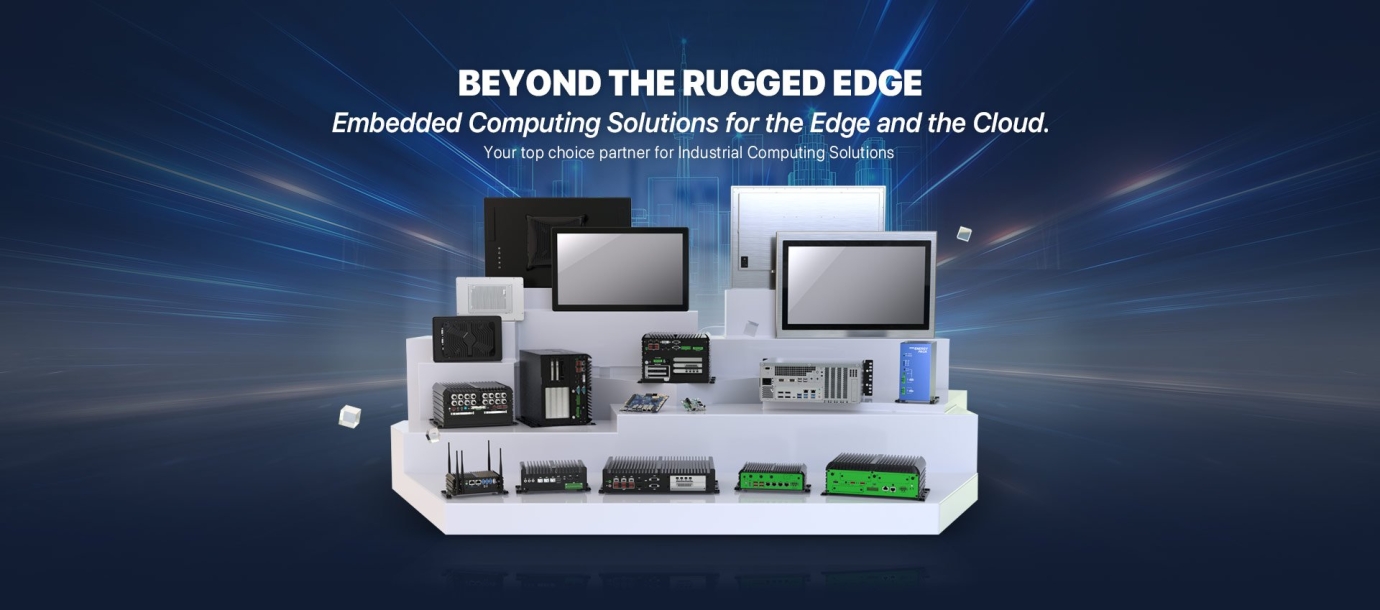PLC vs Industrial PC: What's the difference?

As the industrial sector rapidly advances, automation has transitioned from being a luxury to an absolute necessity. Industries around the world are increasingly adopting industrial automation to boost efficiency, enhance precision, and minimize downtime. At the heart of this automation revolution are two key technologies: Programmable Logic Controllers (PLCs) and Personal Computers (PCs). Both are essential for driving industrial automation, but their roles and applications are distinctly different. In this blog, we’ll explore what they are and what exactly their differences are.
What is a PLC?
A Programmable Logic Controller (PLC) is an industrial computer used to control machinery and processes. It is designed for reliability and real-time operation, capable of managing tasks such as monitoring sensor inputs and controlling actuator outputs. Built to withstand harsh environments, PLCs are programmed using languages like Ladder Logic, allowing PLCs to be highly customizable for machine automation.

PLCs come in a variety of sizes and form factors to meet diverse industrial needs. For example, micro-PLCs are compact and ideal for small, standalone applications like controlling a single machine. Modular PLCs, which can be customized with multiple I/O modules, are perfect for complex processes such as entire assembly lines. Rack-mounted PLCs offer extensive configurations suitable for large-scale operations, such as managing power plants. This range of options allows industries to select the appropriate PLC for specific applications, optimizing operations, and enhancing efficiency and productivity across various environments.
What is an Industrial PC?

As personal computers (PCs) develop rapidly, thanks to the exponential advancement of semiconductor chips, industrial PCs are becoming increasingly popular in the automation industry. With computer chips becoming more powerful, smaller, and cheaper, industrial PCs can now handle tasks traditionally managed by PLCs, along with additional workloads such as HMI, gateways, AI applications, and more. Industrial PCs achieve this workload consolidation due to performance boosters like GPUs, TPUs, VPUs, and NVMe SSDs. This ability to manage multiple tasks reduces the amount of hardware needed on the factory floor. In the following sections, we will explore the similarities and differences between industrial PCs and PLCs.
What is the difference between PC and Industrial PC?
Regular PCs and industrial PCs share similar basic components like CPUs, RAM, SSDs, and GPUs. However, industrial PCs are specifically designed to endure extreme conditions, such as very high or low temperatures, shocks, and vibrations, where regular PCs would quickly fail. Features that make industrial PCs rugged include fanless designs, one-piece chassis, and the use of industrial-grade materials. Additionally, industrial PCs are highly versatile. They not only support the latest technologies but also older technologies commonly used in factory automation, such as serial ports, COM, M12 connectors, DIO, and GPIO. This versatility and durability have led to the rapid increase in the use of industrial PCs in manufacturing automation.
What is the difference between PLC and Industrial PC? 7 Differences

- Operations
A PLC runs on a real-time operating system designed specifically for control tasks. It constantly monitors inputs from connected devices and executes commands based on its program. This specialized OS eliminates the need for antivirus programs or registry cleaners, enhancing processing speed. Industrial PCs can perform similar tasks but with an operating system like Windows or Linux, allowing them to run various applications not available on PLCs. This makes industrial PCs versatile, capable of consolidating workloads and reducing hardware footprint. However, they are susceptible to cyberattacks, though advanced antivirus software and firewalls can mitigate this risk.
- Programming
PLCs use a scan-based program execution, typically using the IEC 61131-2 standard like ladder logic. In contrast, industrial PCs operate on event-driven software and run on Windows or Linux, using programming languages such as C/C++/.NET. This makes industrial PCs easier to program and allows for greater compatibility with machinery and devices, compared to ladder logic which requires special training.
- Security
Security is critical in manufacturing automation, with companies potentially losing millions if breached. Industrial systems must block unauthorized external access and limit user access based on rights. Historically, PLCs were secure from malware, but attacks like Stuxnet have shown vulnerabilities. Industrial PCs also require strong protection, often using antivirus software and hardware modules like TPM 2.0 to encrypt data and safeguard against threats.
- Build Quality
Both PLCs and industrial PCs are designed for harsh environments. Industrial PCs, however, offer features like fanless design, wide temperature range, shock and vibration resistance, high IP rating, and rich I/O with legacy support. Industrial PCs are generally more compact and offer more mounting options, such as VESA, rack, and din rail. They also include features like power ignition management, making them suitable for in-vehicle applications.
- Expansion Capabilities
PLCs and industrial PCs control various devices for monitoring and communication, equipped with multiple COM ports and I/O capabilities. PLCs often have built-in industrial communication protocols like CANbus, Modbus, and EtherCAT. Industrial PCs, with expansion slots, offer greater versatility and can support more I/O, including LAN, USB, and HDMI ports. They can also run HMI applications independently, unlike PLCs that need separate HMI software. Industrial PCs can expand with wireless cards, 5G modules, SSDs, and GPU accelerators.
- Processing Power & Storage
PLCs are powerful for dedicated automation controls, handling high-speed I/O and smaller applications well. However, as automation becomes more complex, industrial PCs with full processors, extensive storage, and performance accelerators like GPUs, TPUs, and VPUs excel in handling heavy computing tasks, such as intelligent assembly lines with machine vision applications.
- Cost
PLCs generally have a lower initial cost for smaller applications but can become expensive with additional computing power or peripherals. Industrial PCs have a higher upfront cost but offer better value for complex tasks due to their expandability and lower total cost of ownership.
Summary – Industrial PC vs PLC
Both PLCs and industrial PCs have their place in industrial automation. PLCs are ideal for smaller, specific automation tasks due to their ruggedness, cost-effectiveness, and security. Industrial PCs are better for complex applications requiring high computing and storage capabilities. They offer lower total cost of ownership for complex tasks and are secure with modern cybersecurity measures. Often, a combination of both can balance costs and benefits, depending on the manufacturing process needs.
C&T Solution: Industrial PC Manufacturer
C&T Solution offers a wide range of industrial PCs tailored specifically for your industrial automation applications. With over 12 years of experience, our engineers at C&T Solution have designed and manufactured industrial computer systems in Taiwan. Our industrial computers are purpose-built, rigorously tested, and validated for the most extreme industrial deployments. Consequently, you receive the most reliable industrial-grade computers from a leading manufacturer in Taiwan. Contact us to learn more about our industrial computers and how to acquire one!

